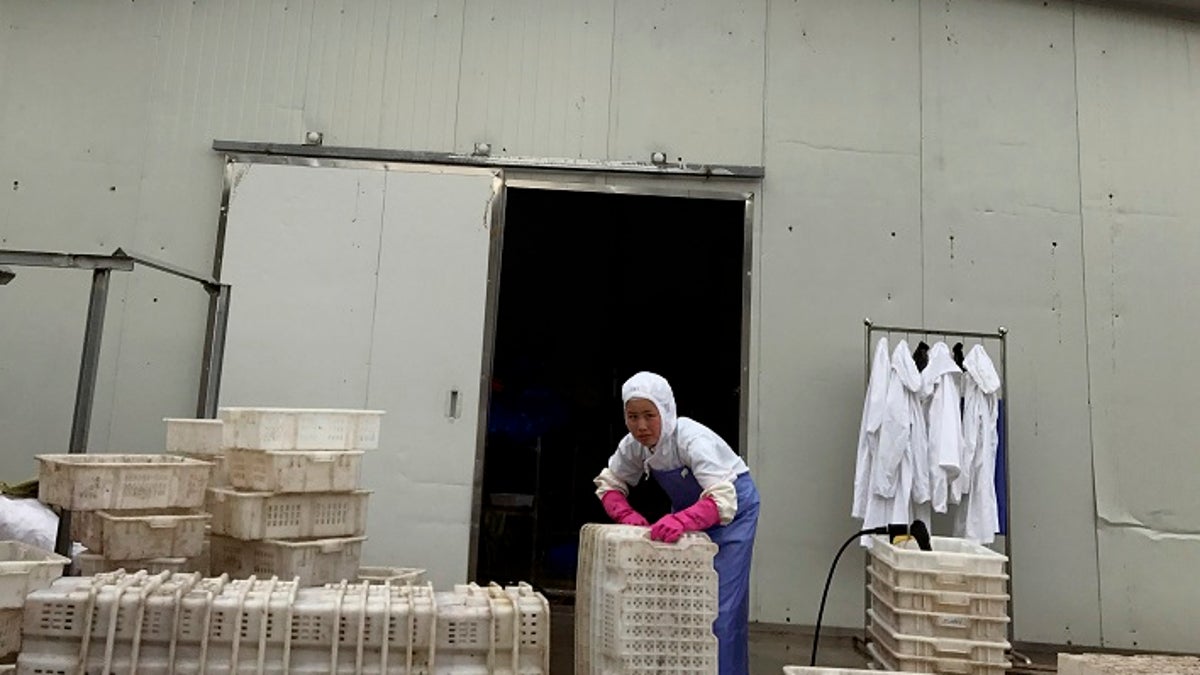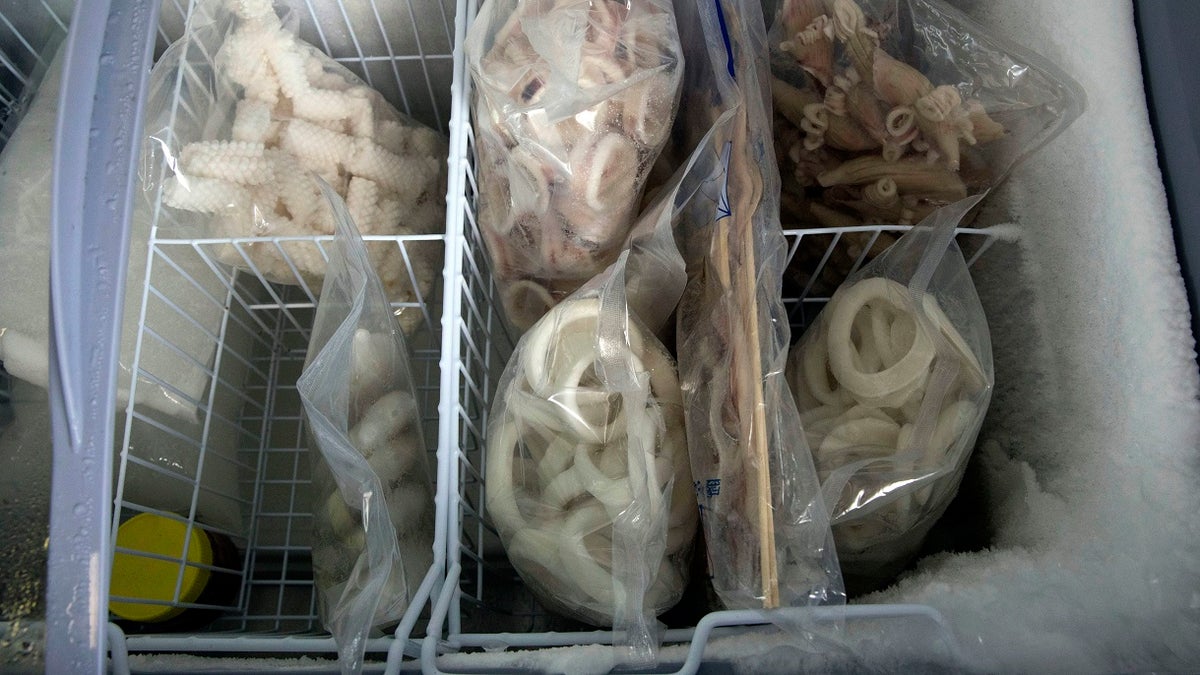Americans buying seafood may have accidentally subsidized the North Korean government as it builds its nuclear weapons program, The Associated Press discovered.
The Hermit Kingdom distributes tens of thousands of its citizens worldwide to factories in order to make a profit. The workers bring in an estimated $200 million to $500 million a year, which could account for a sizable portion of North Korea’s nuclear weapons and missile programs that South Korea estimates costs more than $1 billion.
While North Korean workers have been documented overseas, The Associated Press investigation found that some products they make go to the U.S. The wire service also tracked products made by North Korean workers to Canada, Germany and elsewhere in the European Union.
In response to the discovery, Senate leaders said Wednesday that the U.S. needs to keep products made by North Koreans out and get China to refuse to hire workers from the isolated country.
NORTH KOREA PROMISES TO BRING ‘NUCLEAR CLOUDS’ TO JAPAN; MOCKS PM AS ‘HEADLESS CHICKEN’
"The [Trump] administration needs to ramp up the pressure on China to crack down on trade with North Korea across the board," said Senate Minority Leader Chuck Schumer, D-NY.
At Chinese factories, North Korean workers are not allowed to leave their compounds without permission, and must step from housing to factories in pairs or groups, with North Korean minders. They receive only a fraction of their salaries while the rest – as much as 70 percent – is taken by the Democratic People’s Republic of Korea (DPRK) leader Kim Jong Un's government.
Besides seafood, The Associated Press found North Korean laborers making wood flooring and sewing garments in Chinese factories. Those industries also export to the U.S., but The Associated Press did not track specific shipments except for seafood.

A worker stacks crates at the Yanbian Shenghai Industry & Trade Co. Ltd., which hires some North Korean workers to process seafood in the city of Hunchun in northeastern China. (AP)
American companies are not allowed to import products made by North Korean workers anywhere in the world, and companies doing business with them could face criminal charges for using North Korean workers or materially benefiting from their labor.
Meanwhile, as many as 100,000 North Koreans continue to work construction in the Gulf States, Poland, Russia and Uruguay.
New U.N. sanctions ban countries from expanding their North Korean workforce. The jobs were considered highly coveted among North Koreans.
BANNED VX POISON KILLED BROTHER OF NORTH KOREAN LEADER, CORONER CONFIRMS
Roughly 3,000 North Koreans are believed to work in Hunchun, a Chinese industrial hub near the North Korean and Russian borders.
Shipping records show more than 100 cargo containers of seafood were sent to the U.S. and Canada this year from the factories where North Koreans were working in China, including packages of snow crab, salmon fillets and squid rings.

Frozen squid products at the Yanbian Shenghai Industry and Trade Co. which hires some North Korean workers in the city of Hunchujn. (AP)
Often the fish arrives in generic packaging. But some were already branded in China with familiar names like Walmart or Sea Queen, which is sold exclusively at ALDI supermarkets. There's no way to say where a particular package ends up, or what percentage of a factory's products wind up in the U.S.
ALDI did not comment and a Walmart spokeswoman told The Associated Press the company banned their suppliers from getting seafood at a Hunchun plant a year ago.
Some U.S. companies had indirect ties to North Korean laborers in Hunchun. Customs records indicated that Chicken of the Sea, owned by Thai Union, did business with sister companies of the Hunchun factories in another part of China. Thai Union said the sister company they do business with meets all of their fair labor standards, and should not be penalized just because they have the same owner.
The Associated Press contributed to this report.
